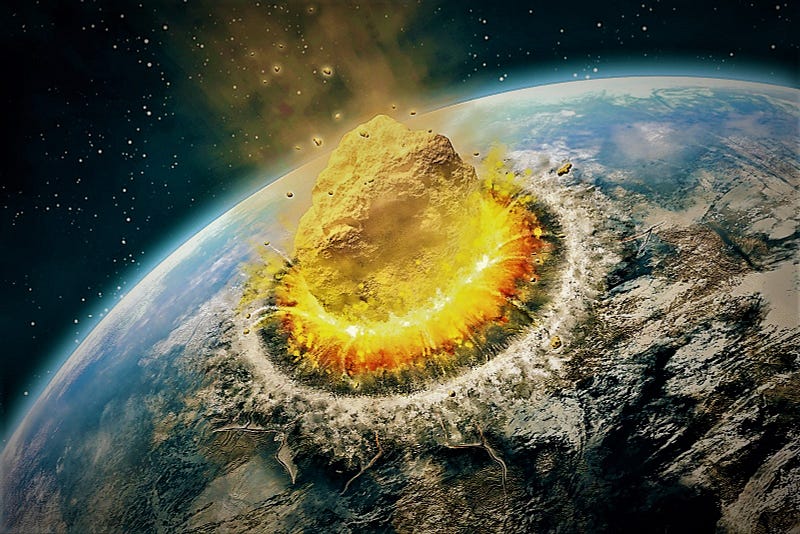The Catastrophic Consequences of an Asteroid Impact on America
Written on
Chapter 1: The Threat of Asteroids
What if an asteroid were to strike the United States? Throughout Earth's history, asteroids have caused significant extinctions, and the repercussions of a modern-day impact could be catastrophic.

Understanding Asteroids
Asteroids are remnants of the early solar system, formed during the creation of planets. Millions of these rocky bodies orbit the sun, primarily located in the belt between Mars and Jupiter. Composed of various materials, including ice, rock, and heavy metals, their sizes can vary dramatically—from mere centimeters to several million kilometers in diameter.
In this video titled "What If an Asteroid Hit Earth in 2024?", we explore the potential outcomes and scenarios of an asteroid impact in today's world.
The Orbit and Impact of Asteroids
Due to the sun's gravitational pull, asteroids continuously orbit and can occasionally be captured by other celestial bodies. Every planet in our solar system, along with their moons, has experienced asteroid impacts. Earth bears evidence of substantial collisions in its past, with scientists believing that such events contributed to major extinction events, including the demise of the dinosaurs approximately 65 million years ago. The possibility remains that a future asteroid could strike Earth, potentially leading to mass extinction.
Each day, Earth encounters hundreds of tons of cosmic dust and sand, with car-sized asteroids entering the atmosphere roughly every century. Fortunately, the friction from the atmosphere typically disintegrates these smaller asteroids before they reach the ground. However, larger asteroids, comparable in size to a football field, strike Earth every two to three million years, and their impacts can result in widespread devastation. These high-velocity objects travel at speeds around 30 km/s, meaning they can reach the ground in under three seconds.
Chapter 2: The Impact Scenario
What would happen if such an asteroid hit New York City? The consequences could be staggering, with estimates suggesting 2.5 million casualties. The initial impact would generate a fireball with a three-kilometer radius, damaging structures within a seven-kilometer radius. This event would resemble a massive earthquake, with the shockwave shattering glass and destroying everything in a 15-kilometer zone, including trees, homes, and hospitals.
The force of the impact would be equivalent to approximately 20 Hiroshima bombs. If the asteroid carried radioactive materials, the fallout would exacerbate the situation, leading to radiation poisoning and additional fatalities. The debris from the impact could result in dust storms or even tornadoes, disrupting economies, weather patterns, and the water cycle. The effects would not be limited to the immediate area; life in other parts of the world would also feel the repercussions.
In the video "What If an Asteroid Hit Earth?", we delve deeper into the potential global ramifications of such an event and consider the broader implications for humanity.